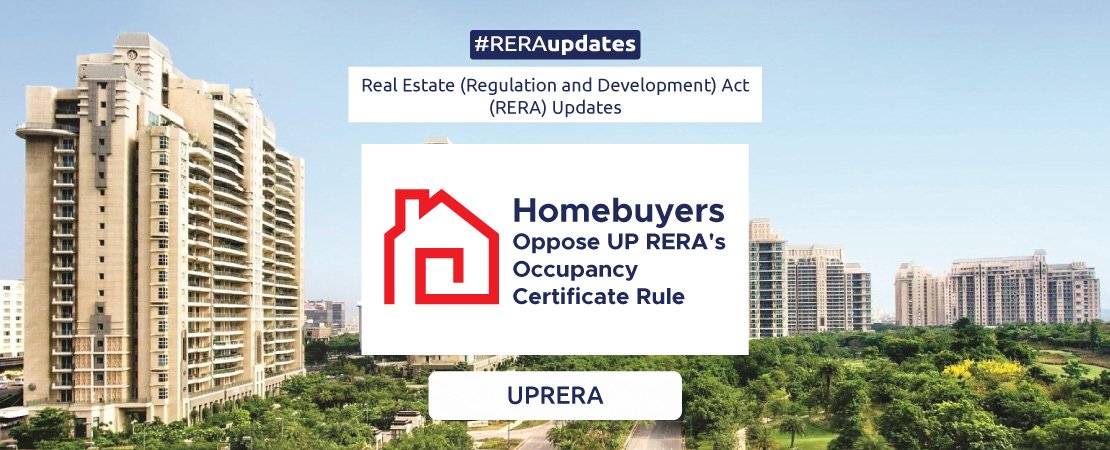UPRERA has asked realtors to sell housing units only on the basis of carpet area and register projects with the same name as recorded in the sanctioned map.
The Uttar Pradesh Real Estate Regulatory Authority has passed several orders over the last few weeks to protect the interest of homebuyers. It has directed real estate developers to sell housing units only on the basis of carpet area and has also asked them to register their projects with the same name as recorded in the sanctioned map. Another order is to do with the inclusion of names of co-allottees in homebuyers’ complaints.
The Uttar Pradesh Real Estate Regulatory Authority has passed several orders over the last few weeks to protect the interest of homebuyers. The Uttar Pradesh Real Estate Regulatory Authority has passed several orders over the last few weeks to protect the interest of homebuyers. The RERA Authority has also directed real estate developers to print the QR code loaded project registration certificate and display it at a prominent place in its office and the project site marketing office so that it is visible to prospective and existing homebuyers of the project from a distance. This is similar to a MahaRERA order that has been in force since August last year.
Hindustan Times – your fastest source for breaking news! Read now. ALSO READ: Real estate sector will contribute 15% to the GDP and will reach a market size of $1 trillion by 2030: Puri It has also made it mandatory for the real estate developers to prove their title on the land on which they propose to develop a real estate project.
1. DEVELOPERS MUST MAINTAIN THE SAME NAME FOR PROJECT BRANDS AS MENTIONED IN THEIR MAPS
The Uttar Pradesh Real Estate Regulatory Authority (UP RERA) has ordered real estate developers to maintain the same name for project brands as mentioned in their maps approved by local authorities and registered with RERA to avoid confusion among homebuyers.
UP RERA said in a statement that the promoters need to register their projects with the same name as recorded in the sanctioned map and the names of towers and blocks must also be the same as in the sanctioned map.
“RERA had to issue these directions because in the wake of differences between the name of the projects and the towers registered with it and the names in the OC (occupancy certificate) or CC (completion certificate), it was finding difficult to ascertain the completion status of the projects as also to decide the promoter’s application for closure of the project accounts,” it said in a statement.
“It was also observed that promoters were using project brand names which were different from the names registered with RERA and this was creating doubts amongst the existing and prospective home buyers. Therefore, to address such anomalies, RERA has now directed the promoters to market the projects with the same name as registered with RERA,” it added.
2. HOMEBUYERS MUST INCLUDE NAMES OF CO-ALLOTTEES IN THEIR COMPLAINTS
UPRERA has asked homebuyers to include the names of co-allottees also in their complaints. It observed that in some cases the complainants had not included the co-allottees as co-complainants and the RERA Benches had disposed of the complaints after hearing the respective parties which in such cases meant hearing only one of the allottees.
“… UP RERA has decided that the name of the co-allottee shall henceforth be included as co-complainant in the complaints filed by the allottees. Necessary facility is being provided on the portal for this purpose,” UP RERA said in a statement.
It said it has observed that joint allotment of houses or shops is a common practice in which husband and wife, father and son, brother and sister and other blood relations are co-allottees and there are cases where a person other than blood relation, such as partner, and sometimes more than two persons are co-allottee.
“Their interests do not necessarily coincide always and disputes between such co-allottees or co-owners do sometimes arise. The absence of the name of the co-allottee in the complaint lodged in RERA is a lacuna due to which resolution of complaints, execution of orders and further proceedings takes more time than required,” UP RERA observed.
UP RERA has created a facility on its portal where a complainant can file such an application online using his dashboard, it added.
3. UPRERA TO TRAIN NEW AND EXISTING REAL ESTATE AGENTS
The state RERA authority has said that it will train new as well as existing real estate agents across the state and will provide them certificates. It said that it will start a special training and certification program for agents where they will be taught the provisions of RERA Act and UPRERA rules. This is similar to a MahaRERA circular issued last year that had made it mandatory for real estate agents to undergo training and appear for an exam.
4. UP RERA ASKS PROMOTERS TO PROVIDE QR CODE WITH PROJECT DETAILS TO HOMEBUYERS
UPRERA has also asked real estate developers in the state to provide project registration certificates embedded with QR code to existing and prospective homebuyers.
“The registration certificate includes relevant details of the project, including its name, name of the promoter, registration number with details of month and year, its duration, including the start and completion date, the project and the promoter addresses,” it said in a statement.
“The QR code is also loaded with the important conditions of registration like the obligation of the promoter to deposit 70 per cent of the amount realized from the allottees and all the moneys raised through project finance, in a separate bank account for being utilized only to cover the cost of construction and that of the project land,” it said.
UP RERA has directed the promoters to print the QR code loaded project registration certificate and display it at a prominent place in its office and the project site marketing office so that it is visible to prospective and existing homebuyers of the project from a distance, it said.
“The homebuyers can scan the QR code of the certificate using their mobile phones and see the details of the project, including details relating to the land, approvals, quarterly progress report, etc, on the web portal of the authority. The project registration certificate is being issued in Form-C,” it added.
5. UP RERA DIRECTS HOUSING PROJECT DEVELOPERS TO SELL UNITS ON CARPET AREA BASIS
UPRERA has directed real estate developers to sell housing units or apartments as per carpet area only. As per the provisions of the RERA Act and pursuant to other legal agreements and contracts, there is no justification of ‘Super Area’, UP RERA said in a statement.
The sale of apartments on this basis will be considered illegal and according to the provisions of RERA Act, buying and selling of apartments is legal only on the basis of carpet area, it said in a statement.
“There is no abbreviation or definition of Super Area in the RERA Act. It is indeed necessary for allottees to consider Carpet Area as the actual area of the unit or apartment and pay the promoter according to this area,” UP RERA Chairman Sanjay Bhoosreddy has said.
For an agreement for sale between a promoter and an allottee, a model agreement for sale has been provided on the UP RERA portal. This model agreement for sale is also based on carpet area. In this way, selling apartments or units on the base of ‘Super Area’ is contrary to the provisions of the RERA Act, according to the statement.
“Hence, promoters must ensure the sale of units according to the Carpet Area only. Violation of this provision may cause legal action,” the UP RERA added.
A few weeks back, Forum for People’s Collective Efforts (FPCE), a pan-India homebuyers’ association had suggested that a unit within the housing ministry be set up to monitor the functioning of all state real estate regulatory authorities (RERAs).










